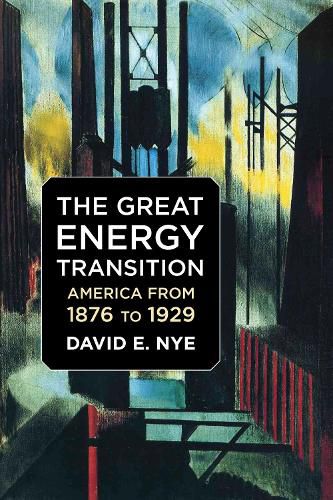Readings Newsletter
Become a Readings Member to make your shopping experience even easier.
Sign in or sign up for free!
You’re not far away from qualifying for FREE standard shipping within Australia
You’ve qualified for FREE standard shipping within Australia
The cart is loading…






How new forms of energy transformed every aspect of American life in a span of 50 years, from 1876 to 1929-and how it seeded our current polarization.
The era of reform. The Gilded Age. The Progressive Era. What historians often divide into discrete eras was one period of profound change- a massive, multipronged energy transition. Oil, gas, and electricity were woven into a culture that had to heal sectional differences after the Civil War, absorb an enormous influx of immigrants, shift from a rural to an urban society, and adopt a scientific understanding of nature.
Every job, business, house, and street underwent a transformation so rapid and radical that Americans simply could not grasp the larger pattern. The concepts of "technology" and an "energy transition" had yet to emerge, and observers struggled to understand their experiences using inadequate terms such as "kaleidoscopic change," "applied science," and "the machine age." In The Great Energy Transition, David Nye documents this transformation-and explains our failure to see it for what it was.
In this disorienting transformation, Nye locates the roots of today's cultural polarization. The great energy transition accelerated demographic and economic trends, including higher wages, increasing longevity, the commodification of experience, engineering nature, corporatism, urbanization, resistance to science, and racial segregation. At the same time, the book points to the innovations and institutions that held the country together, from national parks and monuments to mass consumption and newly invented media events.
$9.00 standard shipping within Australia
FREE standard shipping within Australia for orders over $100.00
Express & International shipping calculated at checkout
Stock availability can be subject to change without notice. We recommend calling the shop or contacting our online team to check availability of low stock items. Please see our Shopping Online page for more details.
How new forms of energy transformed every aspect of American life in a span of 50 years, from 1876 to 1929-and how it seeded our current polarization.
The era of reform. The Gilded Age. The Progressive Era. What historians often divide into discrete eras was one period of profound change- a massive, multipronged energy transition. Oil, gas, and electricity were woven into a culture that had to heal sectional differences after the Civil War, absorb an enormous influx of immigrants, shift from a rural to an urban society, and adopt a scientific understanding of nature.
Every job, business, house, and street underwent a transformation so rapid and radical that Americans simply could not grasp the larger pattern. The concepts of "technology" and an "energy transition" had yet to emerge, and observers struggled to understand their experiences using inadequate terms such as "kaleidoscopic change," "applied science," and "the machine age." In The Great Energy Transition, David Nye documents this transformation-and explains our failure to see it for what it was.
In this disorienting transformation, Nye locates the roots of today's cultural polarization. The great energy transition accelerated demographic and economic trends, including higher wages, increasing longevity, the commodification of experience, engineering nature, corporatism, urbanization, resistance to science, and racial segregation. At the same time, the book points to the innovations and institutions that held the country together, from national parks and monuments to mass consumption and newly invented media events.